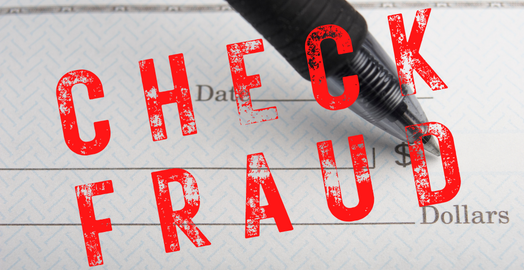Email: laurie.e.page@lpl.com
CALL NOW! (941) 932-4822
Plan Sponsors Ask...Q1 2022

Plan Sponsors Ask...Q1 2022
Plan Sponsors Ask...
Q: We are considering adding a financial wellness program as part of our retirement plan benefit program. Unfortunately, there isn’t a lot in the budget to work with right now. Any ideas on how we might approach it?
A: As you probably know, workers are becoming increasingly interested in financial wellness education that can help reduce financial stress and prepare them for economic uncertainty. In fact, a recent survey by Brightplan revealed that when employees ranked employer-sponsored benefits, “financial wellness” was consistently ranked higher than workplace standards like healthcare and vacation time — and was only surpassed by “salary.”
Here are two activities to consider before launching a financial wellness education program in the workplace:
Conduct an employee survey. Employees should be formally surveyed to get a sense of what they need to feel supported as they continue to return to their prepandemic lives. Employees should be specifically asked in which areas of their personal finances they would most value employer support — such as building an emergency savings account or reducing debt.
Quantify your numbers to justify funding the program. Employers should consider quantifying how financial stress impacts their bottom line through factors such as lower productivity, absenteeism or medical costs. They may also want to consider identifying and targeting groups of employees who need the most help and focus initial financial wellness education efforts on them.
Q: Our plan committee is thinking about purchasing fiduciary liability insurance. Is a fidelity bond the same thing as fiduciary liability insurance?
A: The fidelity bond required under the Employee Retirement Income Security Act of 1974 (ERISA) specifically insures a plan against losses due to fraud or dishonesty (e.g., theft) by persons who handle plan funds or property. Fiduciary liability insurance, on the other hand, is insurance plan fiduciaries purchase to protect themselves in the event they breach their fiduciary responsibilities with respect to the plan. Please note that courts can hold plan fiduciaries personally liable for losses incurred by a plan as a result of their fiduciary failures. Fiduciary liability insurance — while not required — could be an important financial safety net for plan fiduciaries. Although obtaining ERISA fiduciary insurance is considered prudent, it does not satisfy the fidelity bonding required by ERISA.
Q: During our recent annual plan review, we were happy to see that the majority of our employees have continued to make contributions to their retirement accounts during COVID-19 (and very few took hardship withdrawals). Is this unique to us or was it more of a universal trend?
A: Americans continued to save for retirement through DC plans during the first half of this year despite ongoing economic stresses brought about by the COVID-19 pandemic, according to the Investment Company Institute’s “Defined Contribution Plan Participants’ Activities, First Half 2021.” The study tracks contributions, withdrawals and other activity in 401(k) and other DC retirement plans, based on DC plan recordkeeper data covering more than 30 million participant accounts in employer-based DC plans at the end of June 2021. The latest recordkeeper data indicate that plan participants remained committed to saving and investing: a preliminary estimate indicates that only 1.1% of DC plan participants stopped contributing to their plans in the first half of 2021. That compares with 2% in the first half of 2020, and 4.6% in the first half of 2009 (another time of financial stress).
In addition, during the first half of 2021, 2.8% of DC plan participants took withdrawals, the same percentage as in the first half of 2020. Levels of hardship withdrawal activity also were low, with only 1.1% of DC plan participants taking hardship withdrawals during the first half of 2021 — the same share of participants as in the first half of 2020.
For plan sponsor use only, not for use with participants or the general public. This information is not intended as authoritative guidance or tax or legal advice. You should consult with your attorney or tax advisor for guidance on your specific situation.
Kmotion, Inc., 412 Beavercreek Road, Suite 611, Oregon City, OR 97045; www.kmotion.com
©2021 Kmotion, Inc. This newsletter is a publication of Kmotion, Inc., whose role is solely that of publisher. The articles and opinions in this publication are for general information only and are not intended to provide tax or legal advice or recommendations for any particular situation or type of retirement plan. Nothing in this publication should be construed as legal or tax guidance; nor as the sole authority on any regulation, law or ruling as it applies to a specific plan or situation. Plan sponsors should consult the plan’s legal counsel or tax advisor for advice regarding plan-specific issues.



BROWS OUR WEBSITE
Business Hours
- Mon - Fri
- -
- Sat - Sun
- Closed
Check the background of investment professionals associated with this site on FINRA's BrokerCheck.
Securities and advisory services offered through LPL Financial, a Registered Investment Advisor, Member FINRA/SIPC
Certified Senior Advisors (CSAs) have supplemented their individual professional licenses, credentials and education with knowledge about aging and working with seniors. It is recommended that you verify the validity of any professional’s credentials in which you conduct business and be sure you completely understand what those licenses, credentials and education signify. The CSA certification alone does not imply expertise in financial, health or social matters. For more details visit: www.csa.us
General Disclosure - The LPL Financial registered representatives associated with this website may discuss and/or transact business only with residents of the states in which they are properly registered or licensed. No offers may be made or accepted from any resident of any other state.







